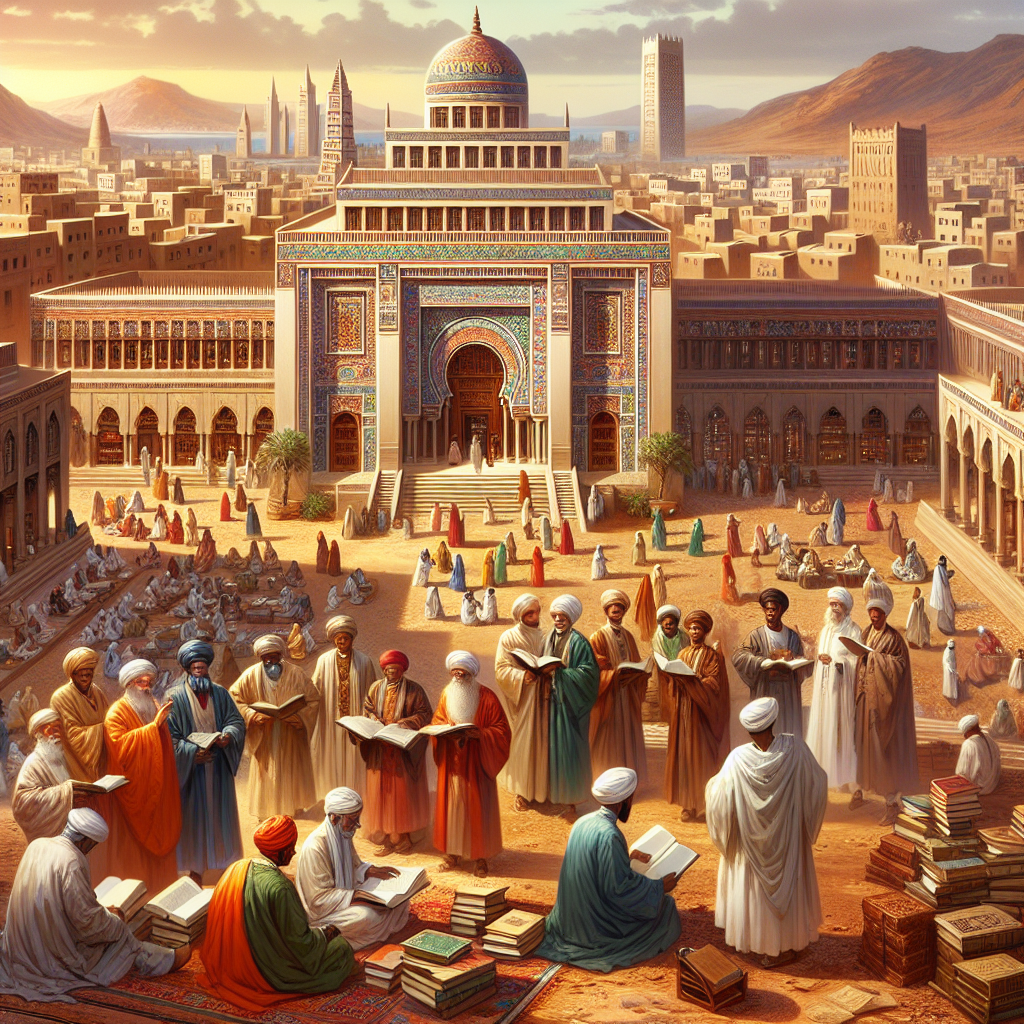Timbuktu: Africa’s Ancient Center of Knowledge and Learning
I. Introduction
Ah, Timbuktu, often painted in broad strokes of mystery and allure, like some ancient fairytale land just before the Sahara starts doing its thing. Founded over a thousand years ago, this city isn’t just an irrelevant dot on a map; it’s a grand testament to the brilliance of African intellectualism. While colonial narratives often gloss over our rich and vibrant history, this blog is here to remind you that Timbuktu is as real as the last time someone tried to tell you that Black history is just a footnote. News flash: it’s not.
Let’s dive into the fascinating saga of Timbuktu—a city that’s as much about rich scholarly traditions as it is about trade, culture, and a sprinkle of that unyielding spirit we know so well.
II. Historical Background of Timbuktu
Born in the 11th century as a humble seasonal camp for nomadic tribes, Timbuktu wasted no time in turning into a bustling trade hub. It practically became the hotspot along the trans-Saharan trade routes, where merchants were not just exchanging gold and salt but pouring wisdom into the mix. With the rise of the mighty Mali Empire in the 13th century, Timbuktu got the chance it deserved, pulling scholars and traders from all over. Who needs Airbnb when you have a city that serves up culture and knowledge on a silver platter?
III. Timbuktu: A Renowned Center of Learning
Timbuktu nailed it when it came to academia. With the establishment of the University of Sankore—one of the oldest universities in the world—this city didn’t just tint the glass of higher learning; it shattered it. It’s almost laughable how they had more madrasas than we have pop-up coffee shops today. Scholars like Ahmad Baba, a prolific writer and legalist, and Ali ibn al-Askia, a historian who knew his stuff, roamed the dusty streets sharing knowledge in astronomy, math, and philosophy like they were just exchanging business cards.
Oh, and let’s not forget the thousands of manuscripts stashed there, covering everything from medicine to poetry. Their scholar-royal library was Pinterest before Pinterest was even a thing!
IV. The Role of Timbuktu in the Islamic Golden Age
During the Islamic Golden Age, Timbuktu was basically the academic equivalent of Coachella, attracting minds from the Middle East and Europe who were just dying to soak up its wisdom. Scholars mingling, exchanging ideas, and creating a vibrant tapestry of knowledge were making it clear: Timbuktu had arrived, and it was not playing second fiddle.
This intellectual exchange wasn’t just about showing off; it was about connecting continents in the grand tapestry of human history. Timbuktu was like that friend who knows everyone and casually brings unity and enlightenment wherever they go.
V. Challenges Faced by Timbuktu Throughout History
Of course, the streetcredible journey isn’t without some potholes. Between invasions and colonial attempts that were basically the ultimate party crashers, Timbuktu‘s vibrant intellectual life faced some serious setbacks. But like any great hero in an action movie, it faced its challenges head-on.
Today, while conflict and political instability have threatened its gem-like heritage, the city stands resilient. Local and international efforts are working around the clock to preserve and digitize those priceless manuscripts that hold the keys to our past like a magic vault no one wants to open with a crowbar.
VI. Contemporary Significance of Timbuktu
Fast forward to today, and what do you find? A modern-day Timbuktu still strutting its stuff, balancing its glorious past while tackling modern-day literacy and education like it’s a returning champion. Organizations like UNESCO have taken notice, and let’s be real; they know they’ve got to safeguard this treasure before someone else tries to burn it to the ground for a TikTok trend.
Timbuktu isn’t just a memory etched in dusty pages; it’s an active part of our ongoing dialogue about education, history, and the flying leap Africa took (and still takes) in contributing to global knowledge. So, the next time someone thinks Black history is just a series of sad stories, you know better—Timbuktu is the chapter they totally missed.
VII. Conclusion
Timbuktu shines not just as a relic of the past but as a beacon of inspiration. Its legacy isn’t just about preservation; it’s about power and knowledge that refuse to be generic footnotes in someone else’s narrative.
This place reminds us that our stories matter and that we must keep pushing for engagement with our rich history, challenging the status quo along the way. You see, the work being done today has the potential to ensure that Timbuktu—symbol of scholarly resilience—continues to teach and inspire, both for those who wear the skin of their ancestors and those looking to learn about them.
Additional Resources
For those itching to dive deeper into Timbuktu‘s vast ocean of engaging stories, check out these gems:
- Suggested Readings: Books like “Timbuktu” by Paul Auster and “The Manuscripts of Timbuktu: A Legacy of Knowledge” are pretty enlightening.
- Documentaries and Online Content: YouTube is a treasure trove of documentaries showcasing Timbuktu’s history and present-day challenges.
- Visiting Timbuktu: If your curiosity is sharp and your travel plans wander here, consider visiting local cultural centers which can give you even more insights into its vibrant legacy.
So remember, Timbuktu isn’t just a point on a map; it’s a loud-and-proud testament to the power of Africa, its culture, and its undying thirst for knowledge—something that’s necessary for the world to hear, whether they want to or not.



0 Comments